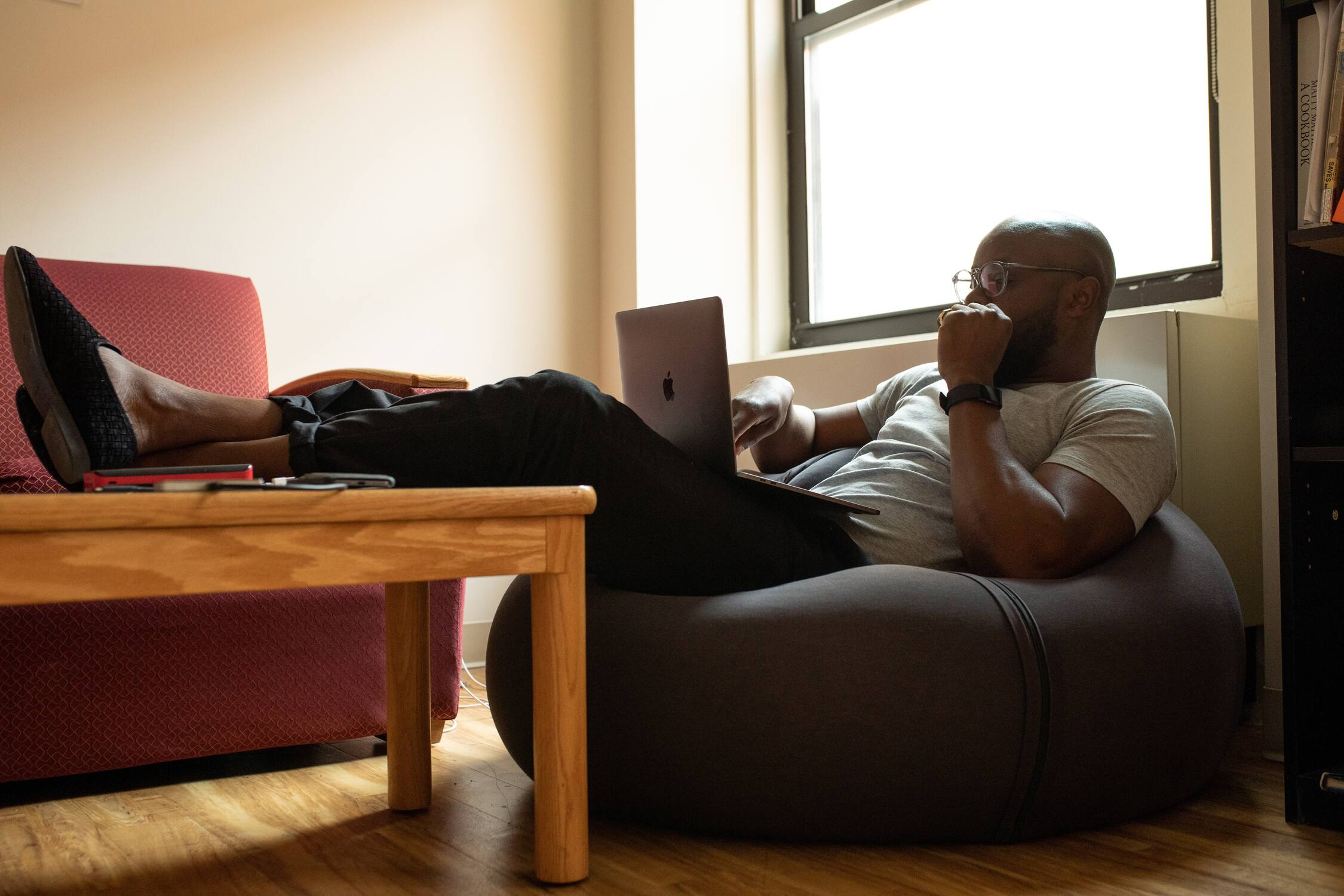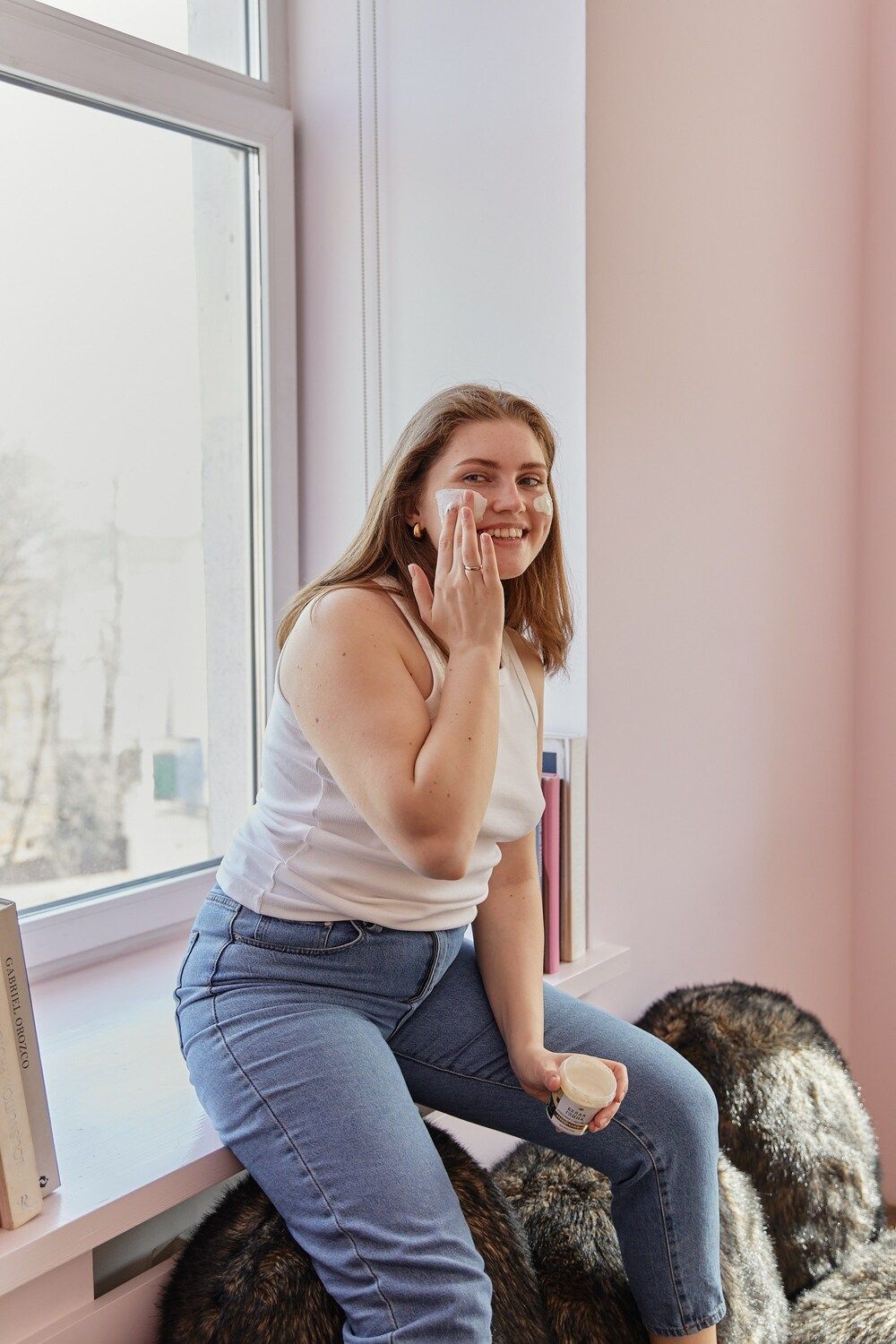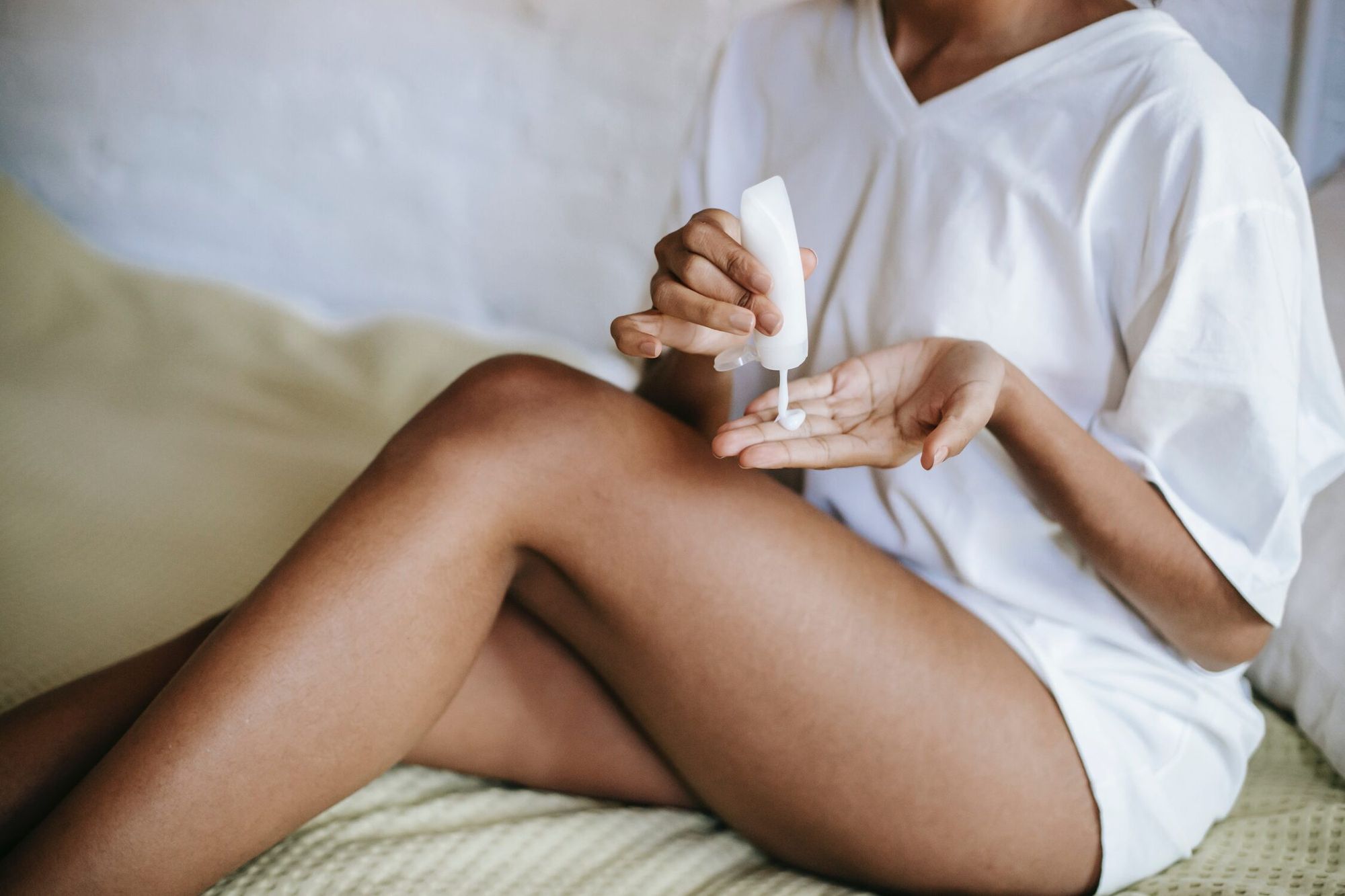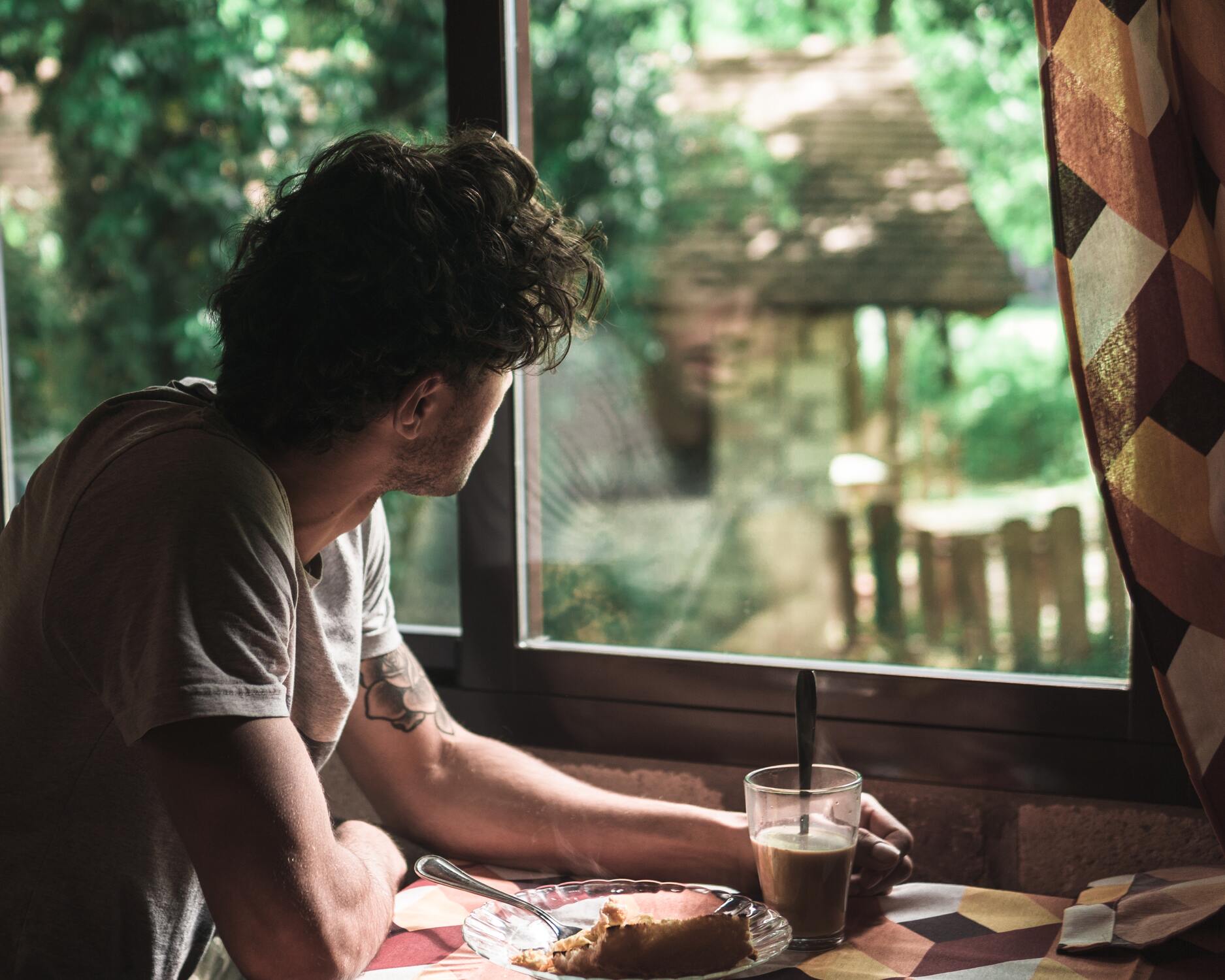Should You Wear Sunscreen Indoors? Get The Facts!
Wearing sunscreen indoors might sound like a crazy fad, but it's actually a really good idea. Why? Because electronic blue light and UV rays bombard us all day inside and out.

We all know the importance of protecting our skin from UV rays. But have you ever wondered what the difference is between sunblock and sunscreen?
Many people tend to use these terms interchangeably, but there is actually a clear distinction between the two when it comes to SPF ratings and protection against UV radiation.
In this article we will explore the differences between sunblock and sunscreen in order to help you make an informed decision about which product is best for you.
HEALTH GUIDE
What You Need To Know
Seriously! Should you wear sunscreen indoors?
It might sound like a silly question, but it's actually more important than you think. While many of us associate sunscreen with a day at the beach or a long hike in the sun, the truth is that UV rays can damage your skin even when you're sitting inside your home or office.
In fact, according to dermatologists, up to 80% of UV radiation can penetrate through windows and cause skin damage. This means that if you spend a lot of time near windows during the day, whether at work, driving or even working from home, you should consider wearing sunscreen on exposed areas like your face and hands. And don't forget about artificial light sources too! Some types of indoor lighting such as fluorescent bulbs and computer screens emit small amounts of UV radiation that can add up over time.
The benefits of wearing sunscreen indoors
You may think that you don’t need to apply sunscreen if you’re not exposed to direct sunlight, but think again. The benefits of wearing sunscreen indoors go beyond just protecting yourself from sun exposure and it's harmful UV rays.
Firstly, applying sunscreen indoors can help prevent premature skin aging caused by sunrays and blue light emitted from electronic devices such as laptops and smartphones on your exposed skin. These rays penetrate and cause damage to our skin cells which can lead to fine lines, wrinkles and sunspots, not to mention the loss of elasticity in our skin. By applying sunscreen daily, you’ll be reducing the amount of blue light that penetrates your skin.

Secondly, using sunscreen consistently can also help prevent skin cancer. Although we’re not exposed to UVB radiation (the type that causes sunburn) while being indoors, UVA radiation still penetrates through windows and can cause DNA damage in our skin cells leading to skin cancers over time. And don't make the mistake of thinking that you're safe and can let your sunscreen take a break on cloudy or stormy days. Unfortunately, harsh UV rays can still penetrate windows even when the sun is hiding.
Can UV rays cause premature ageing, hyperpigmentation and even skin cancer?
We all love a good dose of sunshine, especially when the weather is warm and the sky is blue. Even when you are enjoying your day indoors, did you know that those lovely rays can wreak havoc on your skin? Yes, it’s true! Those same UV rays can travel through windows, meaning sun damage isn’t just limited to sunburn when outdoors – it can lead to premature ageing, hyperpigmentation and even skin cancer if you are spending lots of time near or around windows.

Exposure to ultraviolet (UV) radiation from the sun accounts for around 80% of the signs of ageing. This is because UV rays penetrate deep into our skin's layers and cause damage to collagen fibers, leading to fine lines, wrinkles and sagging skin.
And if that wasn't enough, UV radiation also stimulates melanin production in our skin (causing our skin to darken). This is normally thought as a good thing since melanin is the body's natural reaction to protect our skin from UV ray exposure. But you know what they say about too much of a good thing! Overproduction of melanin can result in uneven pigmentation or even dark spots.
How to Keep Your Skin Safe When Indoors
When we think of sunscreen, we usually imagine ourselves slathering it on before a beach day or a hike, right? So how can you keep your skin safe when indoors? First and foremost, make sure to apply sunscreen every morning. Even if you don't plan on leaving the house, UV rays can still enter through windows and cause damage to your skin over time. Sunscreen protects your skin from both UVA rays and UVB rays.
Most traditional sunscreens protect against UV rays by either absorbing or reflecting them away from our skin. Look for a lightweight formula that won't feel heavy or greasy on your skin and one that is a broad-spectrum sunscreen with at least SPF 30 and apply it generously on your face, neck, arms, and any other exposed areas.

Another way to protect yourself from indoor sun damage is by choosing the right window treatments. Heavy curtains or blinds can block out the majority of UV rays, while sheer fabrics may not provide as much protection.
Additionally, wearing protective clothing can also help shield your skin from the sun's harsh rays while indoors. Opt for long-sleeved shirts and pants made of lightweight fabrics like cotton or linen.
What is the difference between UVA and UVB rays?
UVA rays have a longer wavelength than UVB rays, which means they can penetrate deeper into our skin's layers. This is why UVA exposure is linked to long-term damage like wrinkles, fine lines and age spots. However, unlike their UVB counterparts, UVA rays are present all year round regardless of the weather conditions.
UVB on the other hand has a shorter wavelength than UVA which means it only penetrates the top layer of your skin (the epidermis). It's responsible for causing sunburns, tanning and also contributes significantly to skin cancer development.
What is the difference between Sunblock and sunscreen?
When it comes to sun protection, people often use the terms "sunblock" and "sunscreen" interchangeably. But are they really the same thing? The answer is no! While both products offer protection against harmful ultraviolet (UV) rays from the sun, their mode of action is different.

Sunblock (sometimes called physical sunscreens) primarily works by physically blocking UV rays from penetrating your skin known as a mineral sunscreen. It contains ingredients such as zinc oxide or titanium dioxide, which sit on top of your skin and reflect these rays away. On the other hand, sunscreen uses chemical filters that absorb UV radiation before it can damage your skin cells. These filters include compounds like avobenzone or oxybenzone that create a protective barrier on your skin's surface.
Additionally, sunblock tends to be thicker and more opaque than sunscreen, making it ideal for people with sensitive skin or those who spend extended periods in direct sunlight.
FREQUENTLY ASKED QUESTIONS
The Best Answers For The Right Questions
FAQ's
Q. Does Sunscreen Protect Against Blue Light?
A. With the rise of technology and more time spent in front of screens, a new concern has emerged - blue light. But does sunscreen protect against it and should you wear sunscreen indoors?
Blue light is the high-energy visible (HEV) light emitted by electronic devices such as smartphones, computers, and TVs. Studies show that it can penetrate deeper into the skin than UV rays, leading to potential damage such as hyperpigmentation and inflammation.

However, studies have found that certain types of sunscreens can help protect against blue light exposure. Specifically, mineral-based sunscreens containing zinc oxide or titanium dioxide are effective in blocking out blue light while also providing protection against UVA and UVB rays.
It's important to note that not all sunscreens provide blue-light protection, so it's essential to check the label before purchasing one.
Q. Do I need to wear sunscreen on a rainy day?
A. This is a common question that many people ask themselves when they wake up to overcast skies. The answer is yes! Even though the sun may not be shining brightly, its harmful UV light rays can still penetrate through the clouds and cause damage to your skin.
Research has shown that up to 80% of the sun's UV rays can pass through clouds, fog, and mist. This means that even on a cloudy or rainy day, you should protect your skin from these damaging rays with sunscreen. You don't have to worry about getting a tan or burning on a rainy day, but the risk of long-term damage like premature aging and skin cancer is still there.
When choosing a sunscreen for use on rainy days, look for one with an SPF of at least 30 and broad-spectrum protection.
Q. Best Sunscreens For Indoors
A. It's important to look for a broad-spectrum sunscreen that protects against both UVA and UVB rays. Sunscreens with an SPF of 30 or higher are recommended as they provide adequate protection. Secondly, opt for lightweight formulas that won't feel heavy on your skin or leave a white cast. Lastly, consider sunscreens with added skincare benefits such as hydration or anti-aging properties. It's a combination skin loves and it's recommended by many board certified dermatologist. Also, be sure to reapply sunscreen indoors every few hours.

Key Takeaways.
In this article, we answer the question weather or not you should wear sunscreen indoors.
We are constantly bombarded with UV rays, from the sun and from our electronic screens. So YES, it's always a good idea to wear sunscreen indoors, which in doing so can protect you in more ways than one. First you will enjoy the benefits of reduced fine lines, wrinkles and sunspots, not to mention the better elasticity in your skin. You will also maintain more collagen naturally in your skin and hair which is a big deal. We recommend you use a mineral sunscreen with an broad spectrum SPF of 30 or greater.
Thank you for visiting our site! We have many great articles so enjoy browsing around and consider subscribing as well!

